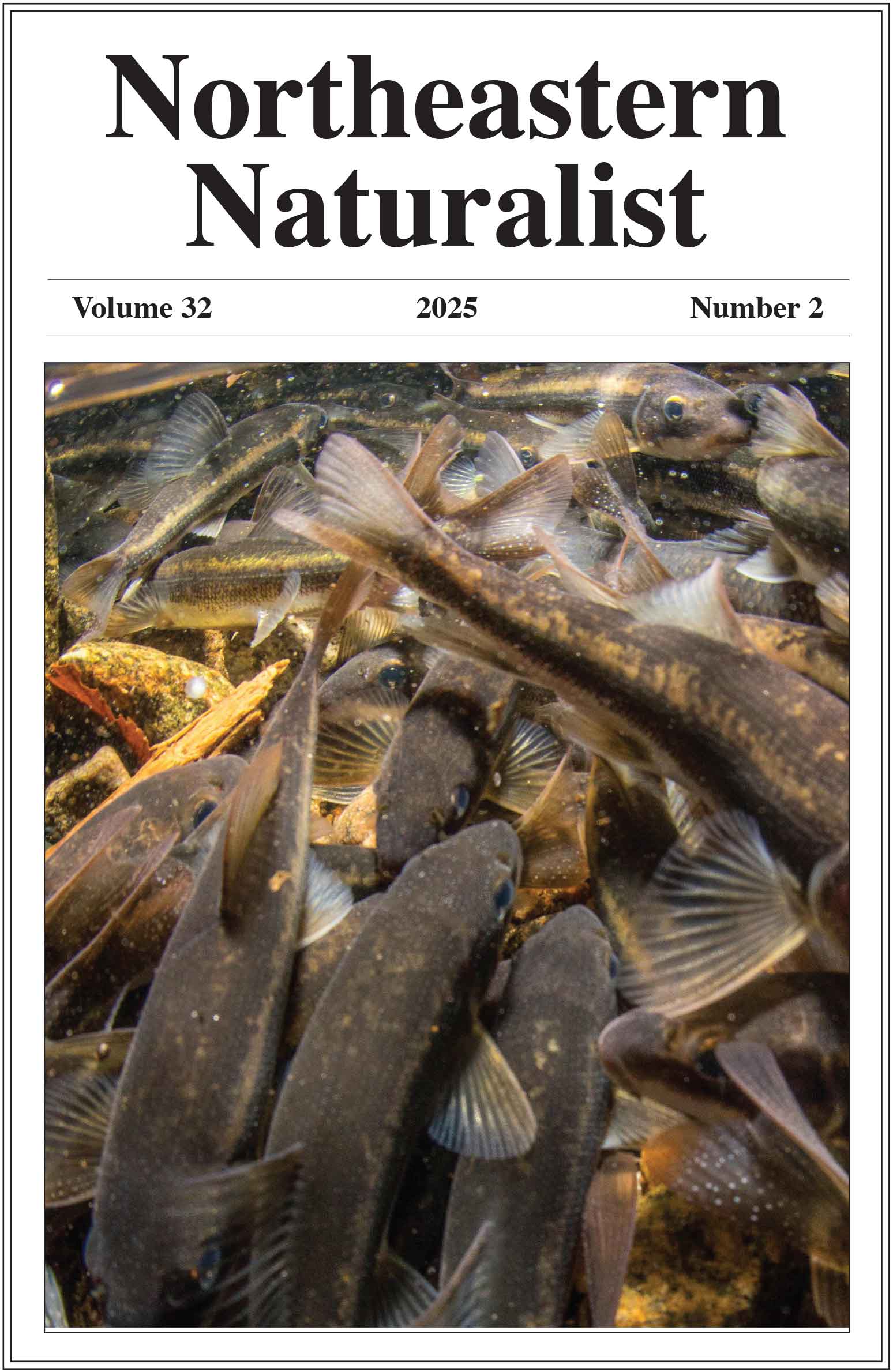Bee-Community Response to Soil Disturbance and Wildland Fire on Marine Corps Base Quantico, Virginia
Jennifer M. Weber1,2, Verl R. Emrick III1, and T. Adam Coates2,*
1Conservation Management Institute, Department of Fish and Wildlife Conservation, Virginia Polytechnic Institute and State University, Blacksburg VA 24061. 2Department of Forest Resources and Environmental Conservation, Virginia Polytechnic Institute and State University, Blacksburg VA 24061. *Corresponding author.
Northeastern Naturalist, Volume 32, Issue 2 (2025): 256–277
First published early online: 24 May 2025
Abstract
Physical disturbances caused by military land use can create and maintain early successional habitats beneficial to a wide range of taxa, including native bee communities. We conducted bee, plant, and soil surveys on Marine Corps Base Quantico in Virginia to determine how different combinations of disturbances (such as wildland fire, ordnance testing, and mechanical compaction) would affect bee biodiversity. Disturbances that affected soil through exposure or compaction had varying effects on the bee community depending on the individual species, with low to moderate disturbance promoting the highest bee species richness. Fire frequency was weakly correlated with bee diversity. Similar studies of additional military installations are warranted to better understand how disturbances that facilitate early successional habitat may impact bee communities.
![]() Download Full-text pdf (Accessible only to subscribers. To subscribe click here.)
Download Full-text pdf (Accessible only to subscribers. To subscribe click here.)
Access Journal Content
Open access browsing of table of contents and abstract pages. Full text pdfs available for download for subscribers.
Issue-in-Progress: Vol. 32 (3) ... early view
Check out NENA's latest monograph and Special Issue:













 The Northeastern Naturalist is a peer-reviewed journal that covers all aspects of natural history within northeastern North America. We welcome research articles, summary review papers, and observational notes.
The Northeastern Naturalist is a peer-reviewed journal that covers all aspects of natural history within northeastern North America. We welcome research articles, summary review papers, and observational notes.